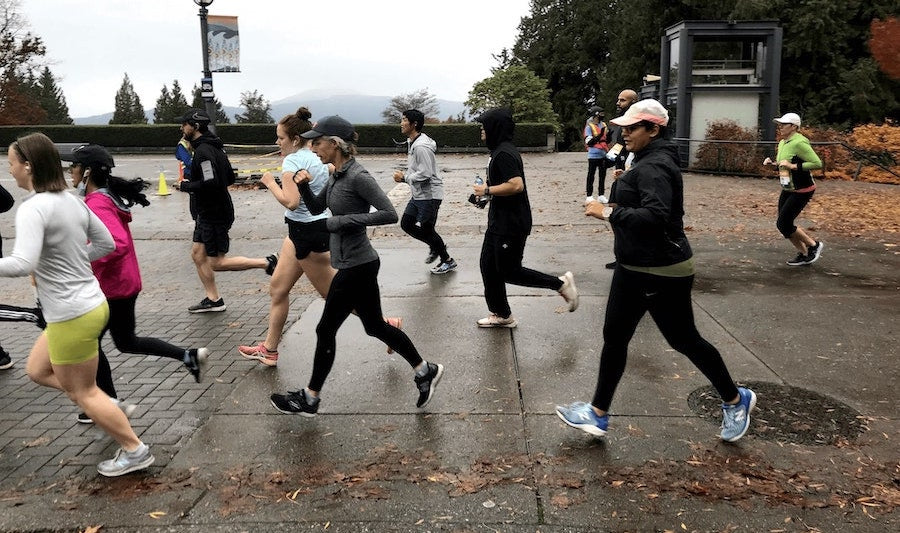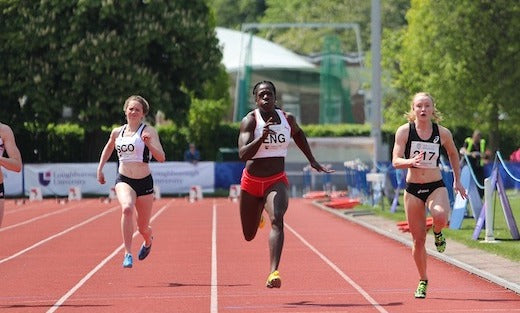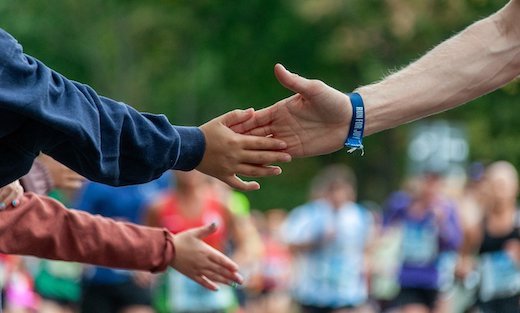TIPS FOR RUNNING YOUR BEST RACE

In this blog, we will share some tips for running your best race.
1. Tapering
Tapering is a crucial part of your training. It helps repair your body and ensure that you have enough energy on race day. Tapering should start 2 weeks before your race if you are running a full or half marathon and 1 week before if you are racing a 10K or 5K.
Reduce your mileage and incorporate more days of rest during your tapering weeks. Avoid thinking that you need to get in one more run as this will increase your risk for injury and may be fatigued to run your best on race day. Remember rest is key when you taper.
2. Nutrition
Proper nutrition is vital for a successful race. Increasing or keeping your carbohydrate intake to a moderate-high level days leading up to the race will assist with increased performance on the day of the race. Carbohydrates are the quickest energy sources for our body to use and provide fuel for our muscles to work . Most can be digested quickly and easily, making them the best food to eat before a race.
3 to 5 days before your race (half and full marathon only): Keep your main meal plates and snacks mainly carbohydrates. Eat carbohydrates that your body knows and you have used throughout training. It is not the time to try something new.
1 day before your race (all race distances): Choose a predominantly high-carb meal with small portions of protein and vegetables, keeping fat and high fibres to a minimum. Give yourself enough time (2-3 hours) to eat your meal before going to bed on race night if you are planning to have a late lunch. Eating right before going to bed can disrupt the chance of a restful night’s sleep.
Morning of the race (all race distances): It is highly recommended not to skip breakfast. Give yourself 3-4 hours from race time if choosing to have an average-sized breakfast, then have a smaller carbohydrate rich snack 1-2 hours from race time. Use the same breakfast that’s worked for you throughout training. Again, it is not the time to try something new. You don't want to risk causing stomach issues during your race.
During the race (half and full marathon only): The best food to eat during a half or a full marathon is something you’ve tested several times during your training and that sits well with you! Energy gels are highly recommended as they are full of carbs and they are processed quickly by our body. Dried fruits and bananas also work if you are not a big fan of gels. Your Carbohydrate intake should be every 45 minutes of your race.
After the race (all race distances): Your post-run recovery meals and snacks should consist of carbohydrates and plenty of protein. It's important Also, eat as soon as you can after finishing your run, preferably within 20 minutes but don't wait longer than 2 hours. If you feel like you just can't eat after a run, try drinking your nutrition with a protein shake.
3. Hydration
Hydration can make or break your race. Being properly hydrated before your race is a key to a strong performance.
1 day before your race: Don't over-hydrate throughout the day before the race, drink water when you are thirsty, but don't overdo it. Drinking 4-8 oz of water each hour works well. You can mix your water with electrolytes. Find out what electrolytes will be provided during the race. If you're able, train using the same electrolyte provided by the race. If your system doesn't tolerate the featured race drink or you'd just prefer to use something different, be sure to plan out how you'll carry your preferred hydration source. Some options include wearing a hydration belt or a camelBak. Avoid alcoholic beverages as alcohol might compromise your sleep and temporarily reduce your body’s ability to store glycogen, which is vital for endurance.
Morning of the race: Drink 16 oz. of water two hours before race time. This will provide enough time for the water to pass through your system and the excess be voided well before the start.
During the race: Stop at every water station along the race course and try to have a sip of water. If you are carrying your own water/electrolytes, have a sip every 7-10 minutes.
After the race: For every kilogram of body weight you lose getting to the finish line, you need to consume one-and-a-half litres of fluid. Try to drink around 500ml in the first 30 minutes after your run and top up with mouthfuls every five to 10 minutes until you reach your target.
4. Clothing
Your clothing and gear choices can make all the difference in your race. Don’t try anything new on race day. Don’t wear new shoes, but your existing shoes should have no more than 500 miles on them. Make sure your shoelaces are tied properly before you hit the start line.
Stick to the same clothing that you have been wearing during your training. Check the forecast. Spring weather is often unpredictable, so prepare for various scenarios. If it's very cold in the morning, wear top layer clothes that you won't mind discarding along the course as the day warms up. If the weather is warm, wear clothing that is coloured and lightweight. If it's raining, wear a trash bag or disposable poncho at the start line and throw it away when the race begins.
Be careful not to overdress. At the starting line, you should actually feel a little chilled because your body will warm up a few miles into the race. A good rule of thumb is to dress as if it's 15 degrees warmer than it really is.
Before you get dressed in the morning, apply sunscreen to prevent sunburn if it is sunny and Vaseline® or BodyGlide® to prevent chafing in locations like armpits, nipples, and inner thighs. Don't forget your run cap and sunglasses if it is sunny or gloves if it is cold. Your socks should be made from a breathable, quick-drying fabric to keep your feet dry as you clock up the miles.
Finally get your clothing and race gear ready the night before your race. Don't forget to attach your bib to your running shirt.
5. Sleep
Sleeping and resting are keys for a successful race. Try to get eight hours of sleep. Don't go to bed too early as it may cause you to wake up too early; then you may have a hard time falling back asleep. Keep your phones and tablets away for at least an hour before you go to sleep. Try to read or listen to relaxing music instead. Meditate if possible. Stay in bed and read a book if you find yourself unable to sleep. Leave the TV alone.
6. Arrive Early
Aim to get to the race time one hour to 90 minutes ahead of the start time. This will give you plenty of time to relax and get mentally prepared, do your gear check and hit the washroom prior to your race
7. Warm Up
The point of the warm up is to prepare your body and mind for the upcoming race. It must be of moderate intensity and should not wear you out. Five minutes of easy jogging followed by 3 to 5 minutes of dynamic stretching makes a great dynamic warm-up. Some dynamic stretches you can perform are butt kicks, high knees, hip opening, high kicks, squats and lunges.
8. Start Slow
It's very easy to get caught up in the excitement of the start and before you know it you're running a minute faster than your race pace. Ignore the speedsters around you in the starting corral. Instead, start slow and then gradually increase your speed to reach your target race pace. Pick up the pace towards the end of the race to make up for the lost time you had at the beginning.
9. Enjoy Your Race
It's normal to feel nervous the morning of the race. Try to relax. Being tense and unrelaxed will make you less efficient during the race. Relax your hands and shoulders and take a few deep breaths.Have faith in all of your hard work and preparation and believe in yourself. Enjoy your race. Treat it as a fun party and not as a final exam. Feel confident that you can achieve your goals.







Leave a comment